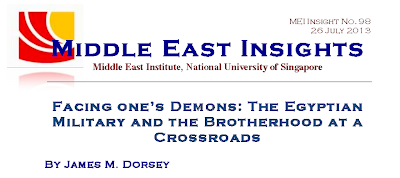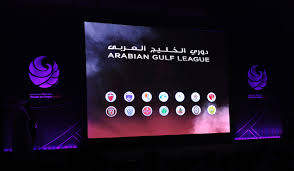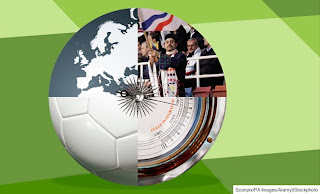MEI Insight: Facing One's Demons: The Egyptian Military and the Brotherhood at a Crossroads

Introduction Events in Cairo have all the hallmarks of a return to the repression under ousted President Hosni Mubarak that prompted millions of Egyptians two years ago to camp out on Cairo’s Tahrir Square for 18 days until the military forced him to step down after 30 years in office. Little in the unfolding drama in Egypt genuinely responds to the demands put forward by the protesters two years ago: an end to the police state, greater political freedom, respect for human rights, an end to corruption, and justice and dignity. Is Egypt going to change? Or is this a return to Mubarak-style politics? Same-Same or Same-Different? Egypt was seemingly united two years ago when Mubarak was ousted. There were no mass demonstrations against the ousting of the president. This time round, the Muslim Brotherhood’s mass protests against the removal of President Mohammed Morsi, post-revolt Egypt’s first democratically elected leader, complicates things for the military that sees itself a



